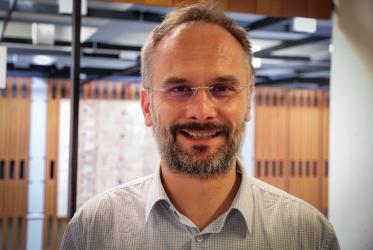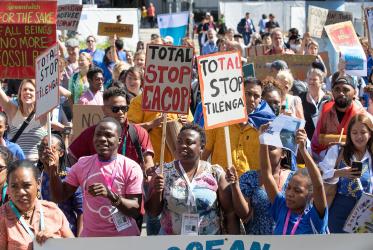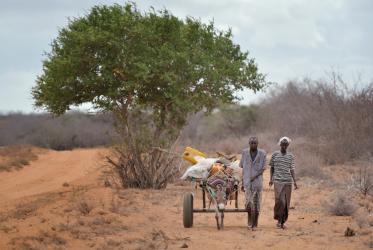sharing the stories
The Waterfall of Solidarity and Resistance is a tapestry of over 180 cloth panels, all conveying stories of pain, resistance and hope in efforts to overcome sexual and gender-based violence. The World Council of Churches invited individuals and groups to contribute panels as part of the Thursdays in Black global movement, and the resulting tapestry was launched at the WCC’s 11th Assembly in September 2022.
The tapestry itself makes a profound and moving statement of our need and commitment to a world without rape and violence. This publication brings all the panels and the stories and explanations of their creation together so that the words and images can make an even greater impact in our homes and communities.
04 March 2024

















